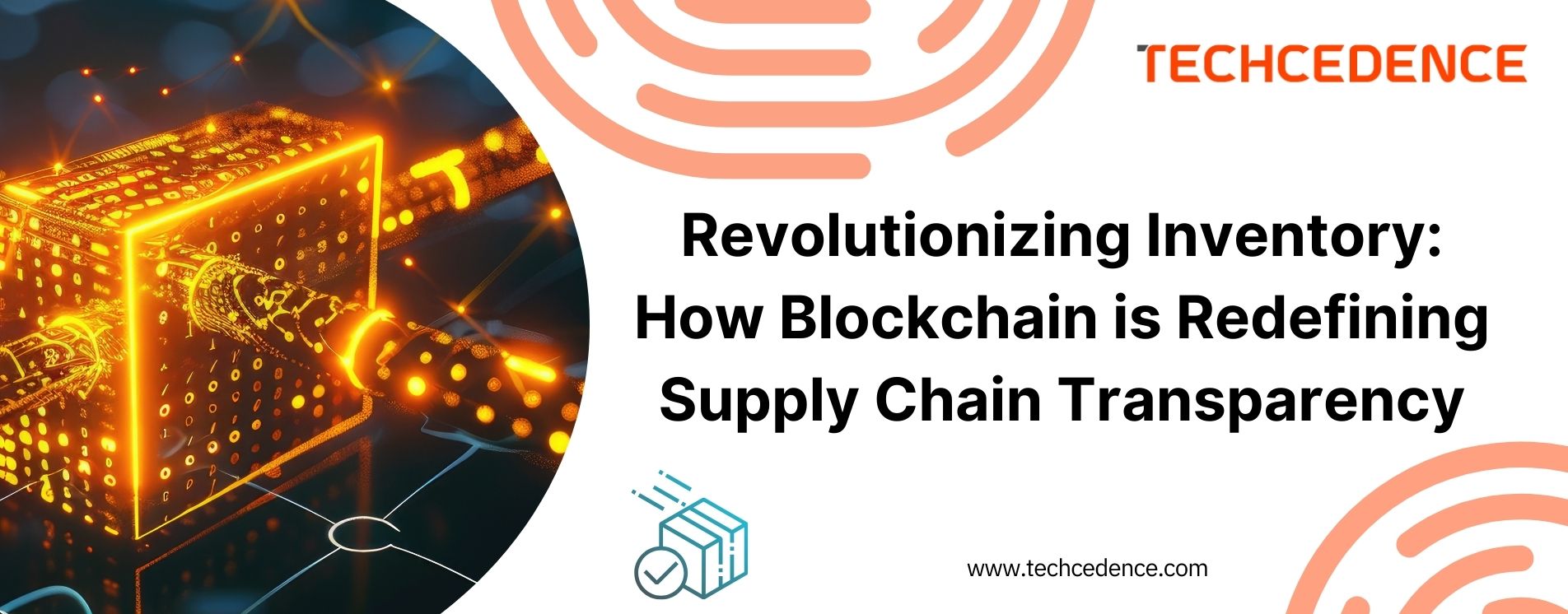
Categories : Uncategorized
Author : Date : Sep 2, 2024
In the evolving modern business world, efficient inventory management stands as the cornerstone of operational success. As organizations strive for greater efficiency, accuracy, and transparency in their supply chains, blockchain technology emerges as a transformative solution. This innovative technology promises to revolutionize inventory management by offering unprecedented levels of security, traceability, and real-time visibility.
The decentralized digital ledger of blockchain technology is distributed across multiple computer networks. Each data ‘block’ in blockchain architecture is cryptographically linked to its predecessor, forming a sequence. This linkage ensures data integrity, requiring changes to all subsequent blocks if a single block is altered, thus providing high security and reliability to the system.
In the context of inventory management, blockchain offers a strong framework for tracking and documenting every stage of a product’s journey. Whether it’s from raw materials to finished goods or from the manufacturer to the end consumer, blockchain establishes an unbroken flow of information that is both transparent and reliable.
One of the most significant advantages blockchain brings to inventory management is enhanced transparency. Blockchain technology addresses these issues by providing real-time, end-to-end visibility of inventory movement. Each transaction or movement of goods is recorded as a new ‘block’ in the chain, creating a permanent and verifiable record.
Data security and fraud prevention are paramount in inventory management. Blockchain’s inherent characteristics make it an exceptionally secure platform for managing inventory data. The decentralized nature of blockchain, combined with its cryptographic features, makes it extremely difficult to manipulate data without detection.
Each transaction in a blockchain is verified and agreed upon by multiple parties before it’s added to the chain. This consensus mechanism, coupled with the immutability of recorded data, significantly reduces the risk of fraud and errors. For businesses, this translates to more reliable inventory records, reduced shrinkage, and improved overall security of the supply chain.
In addition, blockchain enables the implementation of smart contracts, which are contracts that execute themselves based on terms coded directly into them. These smart contracts can automate different parts of inventory management, such as placing new orders when stock levels are low and making payments when goods are delivered. This automation not only enhances efficiency but also decreases the likelihood of human errors or tampering.
The auditing and compliance processes are greatly simplified by the immutable and transparent nature of blockchain records. In traditional systems, auditing often requires time-consuming reconciliation of records from various sources. With blockchain, all relevant information is recorded in a single, tamper-proof ledger, which can be accessed by authorized parties. This efficient method of data management and verification can result in significant time and cost savings. Auditors can easily track the history of any item in the inventory to verify its origin, movements, and status.
Utilizing the abundance of data from blockchain systems can enable better business decision-making. By having real-time access to precise inventory data, companies can enhance their stock levels, minimize carrying costs, and boost cash flow. The transparency provided by blockchain also facilitates improved demand forecasting and more agile supply chain management.
In addition, blockchain’s advanced tracking abilities offer valuable insights into supply chain operations for businesses. Through meticulous monitoring of goods’ movement at all stages, companies can identify concealed inefficiencies, like delays or bottlenecks, which could be impeding their processes. This visibility level empowers them to make informed choices for optimizing operations, cutting lead times, and enhancing overall efficiency significantly.
As blockchain technology continues to advance, its role in inventory management is expanding beyond basic tracking. The potential for blockchain to integrate with other cutting-edge technologies, such as the Internet of Things (IoT) and artificial intelligence (AI), is opening new possibilities. IoT devices can feed real-time data directly into blockchain systems, providing up-to-the-minute information on the location and condition of inventory items. Meanwhile, AI can analyze this data to optimize supply chain routes, predict maintenance needs, and automate various aspects of inventory management. Together, these technologies promise to create even more powerful and intelligent inventory management solutions that can adapt to the complex demands of modern business.
The arrival of blockchain technology revolutionizes inventory management by addressing enduring issues related to transparency, security, and productivity. Through the establishment of a secure, transparent, and unchangeable log of all inventory transactions, blockchain empowers organizations to simplify their processes, decrease fraudulent activities, and establish confidence with both partners and customers.
The use of blockchain in inventory management is projected to increase in pace going forward. Companies embracing this technology will gain a significant edge in navigating an increasingly complex and competitive business landscape. The future of inventory management is here, built upon the foundations of blockchain technology.